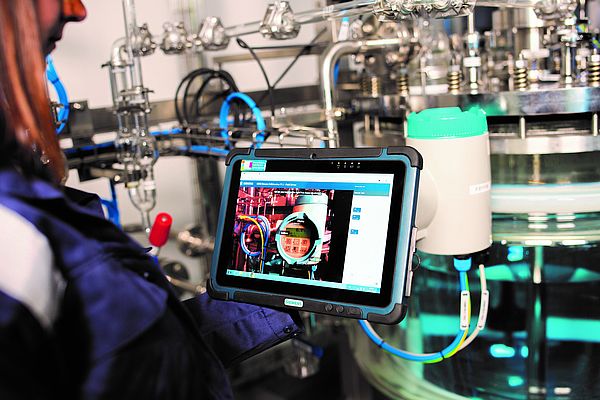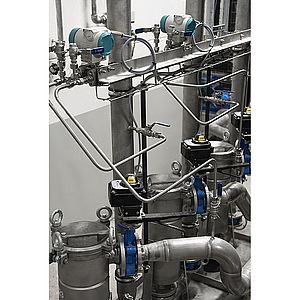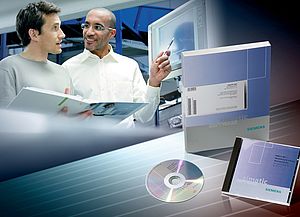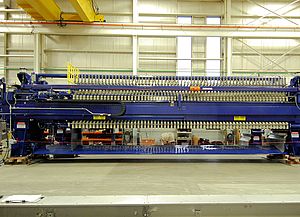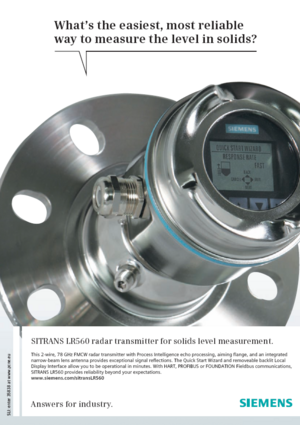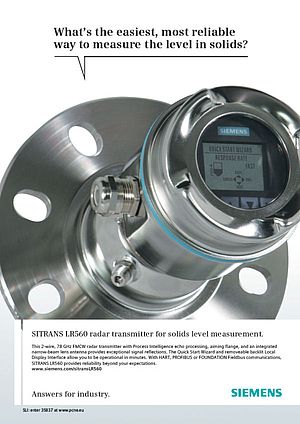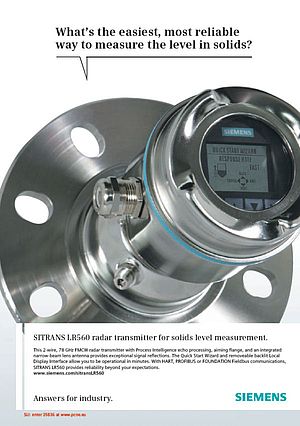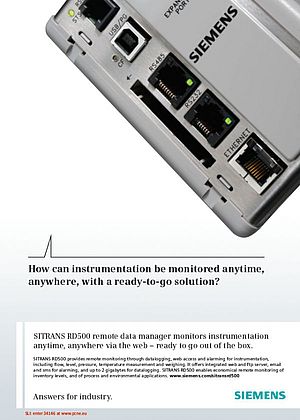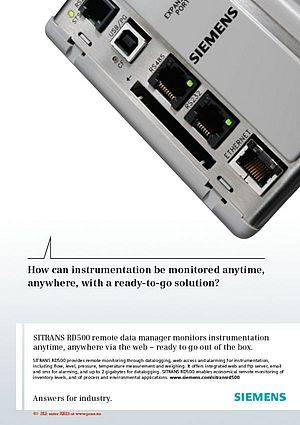Plants have to be regularly maintained, commissioned, optimized or quickly converted to the production of alternative products, even though technicians cannot be personally on site. In addition, employees should undergo in-depth training in order to be able to carry out and maintain processes and workflows safely. For example, current travel and contact restrictions require efficient and secure solutions for engineering, commissioning, operations, service and maintenance from a distance. In short: individually adapted “home office” solutions for everyday industrial production tasks.
Secure remote access for service personnel and commissioning
The ‘new normal’ affects both service personnel and programmers. Travel restrictions continue to have a negative impact on the commissioning of new plants as well as the maintenance and adaptation of existing ones. One solution for these restrictions is offered, for example, by the Siemens management platform Sinema Remote Connect in combination with Scalance industrial routers. This allows simple, secured remote access to machines and plants which can be set up and managed from almost anywhere in the world.
Virtual cooperation on a secure platform
The common Remote Service platform (cRSP) from Siemens even goes a step further. Via this platform, remote access can be set up to satisfy even the most complex requirements. This means that even challenging engineering, commissioning, and maintenance tasks can be carried out conveniently on automation systems from a distance. For example, Sipix SD (Siemens Process Industry Expert Service Devices) for remote-assisted collaboration can be used to instruct and guide on-site service technicians via video.
Virtual cooperation via the web – even for control technology
For years, Siemens has been pursuing a secure web-based approach to the central remote control and monitoring of globally distributed plants with the established Simatic PCS 7 process control system, which provides secured access to local HMI functions as well as to current production data. This approach is also perfectly suited for remotely managing and optimizing unmanned plants. Global cooperation between various project teams working on the same engineering project via web is an integral part of the architecture of the fully web-based Simatic PCS neo process control system. The system provides for the necessary transparency and consistency of engineering data, thus automatically avoiding conflicts. Both plant operators and maintenance teams have device-independent access to the complete plant information all over the world. Installed on a tablet or laptop, they can bring their control system along with them to the plant.
Virtual commissioning and operator training from the home office
The simulation and virtual commissioning of automation systems are also playing an increasingly important role. For this purpose, the company offers scalable solutions that can avoid impending project delays due to contact restrictions. Based on the digital twin of a real automation system, the Simit simulation platform allows the simulation, testing, and optimization of a plant’s behavior on a PC and even the virtual commissioning of more complex software. Projects can thus mature in the home office, minimizing delays and the number of contacts during real-life commissioning. The digital twin can also be used for location-independent, low-contact training outside the plants.
Comos, the software solution for holistic plant project management, also plays a major role: Comos Walkinside enables the 3D Virtual Reality visualization of plants still under construction. It is simply perfect for providing the future maintenance and operations teams with realistic training on the virtual model – much like a computer game.
With these digital remote applications, Siemens supports manufacturers and operators in a variety of ways to maintain the availability and productivity of their machines and plants at the highest level. This aspect will also be of prime importance for industrial production under ‘new normal’ conditions.


